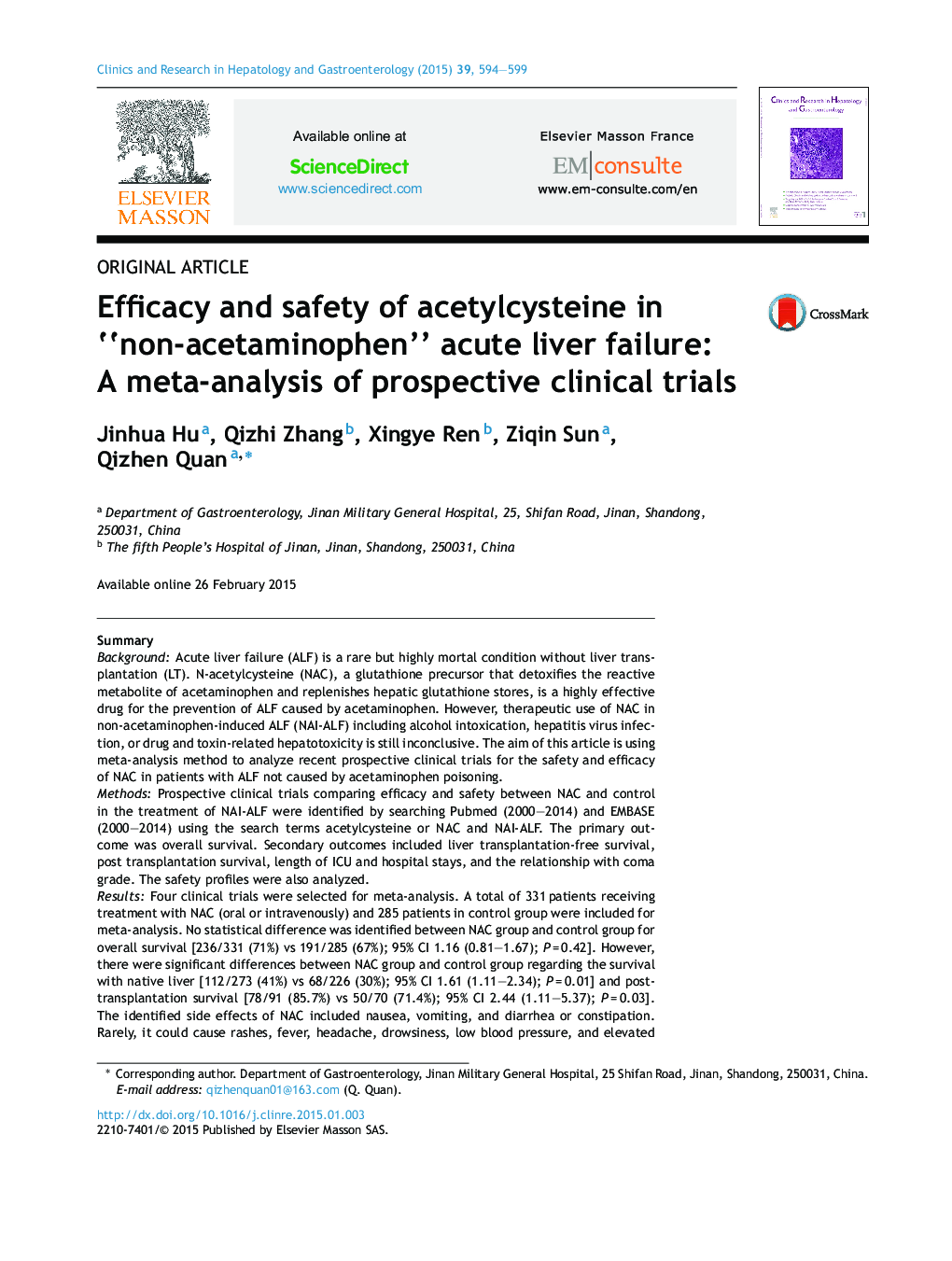| کد مقاله | کد نشریه | سال انتشار | مقاله انگلیسی | نسخه تمام متن |
|---|---|---|---|---|
| 6091746 | 1209281 | 2015 | 6 صفحه PDF | دانلود رایگان |
SummaryBackgroundAcute liver failure (ALF) is a rare but highly mortal condition without liver transplantation (LT). N-acetylcysteine (NAC), a glutathione precursor that detoxifies the reactive metabolite of acetaminophen and replenishes hepatic glutathione stores, is a highly effective drug for the prevention of ALF caused by acetaminophen. However, therapeutic use of NAC in non-acetaminophen-induced ALF (NAI-ALF) including alcohol intoxication, hepatitis virus infection, or drug and toxin-related hepatotoxicity is still inconclusive. The aim of this article is using meta-analysis method to analyze recent prospective clinical trials for the safety and efficacy of NAC in patients with ALF not caused by acetaminophen poisoning.MethodsProspective clinical trials comparing efficacy and safety between NAC and control in the treatment of NAI-ALF were identified by searching Pubmed (2000-2014) and EMBASE (2000-2014) using the search terms acetylcysteine or NAC and NAI-ALF. The primary outcome was overall survival. Secondary outcomes included liver transplantation-free survival, post transplantation survival, length of ICU and hospital stays, and the relationship with coma grade. The safety profiles were also analyzed.ResultsFour clinical trials were selected for meta-analysis. A total of 331Â patients receiving treatment with NAC (oral or intravenously) and 285 patients in control group were included for meta-analysis. No statistical difference was identified between NAC group and control group for overall survival [236/331 (71%) vs 191/285 (67%); 95% CI 1.16 (0.81-1.67); PÂ =Â 0.42]. However, there were significant differences between NAC group and control group regarding the survival with native liver [112/273 (41%) vs 68/226 (30%); 95% CI 1.61 (1.11-2.34); PÂ =Â 0.01] and post-transplantation survival [78/91 (85.7%) vs 50/70 (71.4%); 95% CI 2.44 (1.11-5.37); PÂ =Â 0.03]. The identified side effects of NAC included nausea, vomiting, and diarrhea or constipation. Rarely, it could cause rashes, fever, headache, drowsiness, low blood pressure, and elevated serum transaminase levels in a patient with cystic fibrosis. At the dose used for acetaminophen toxicity, acetylcysteine does not have hepatotoxic effects.ConclusionNAC is safe for NAI-ALF. It can prolong patients' survival with native liver without transplantation and survival after transplantation, but it cannot improve the overall survival.
Journal: Clinics and Research in Hepatology and Gastroenterology - Volume 39, Issue 5, October 2015, Pages 594-599
